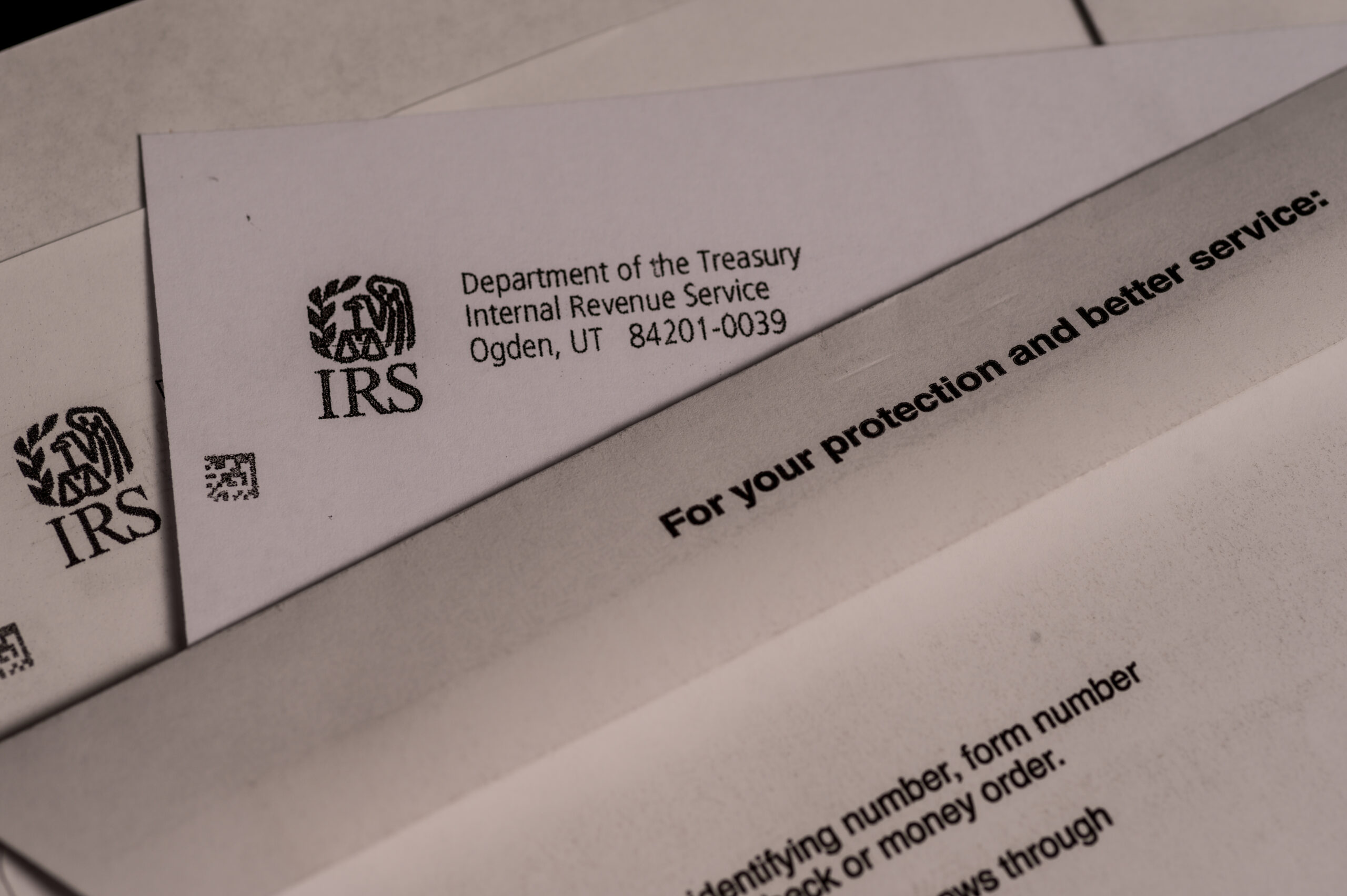For the most part, Taxpayers do not want to receive mail from the IRS or open mail from the IRS. This is why IRS issued Tax Tip 2024-45 on May 6, 2024 to let taxpayers know what taxpayers should do if they receive mail from the IRS. Receiving mail from the IRS can be worrisome and taxpayers are encouraged to consult with a tax professional in order to determine the best way to respond, explore options and protect a taxpayer’s rights.
IRS sends mail to taxpayers in the form of notices and letters when:
- Taxpayer has a balance due.
- Taxpayer is due a larger or smaller refund.
- IRS has a question about the taxpayer’s tax return.
- IRS needs to verify the taxpayer’s identity.
- IRS needs additional information.
- IRS changed the taxpayer’s return.
- IRS need to notify the taxpayer of delays in processing their return.
IRS states on Tax Tip 2024-45 that when a taxpayer receives mail from the IRS they should:
- Read the letter. Most IRS letters and notices are about federal tax returns or tax accounts. Each notice deals with a specific issue and includes any steps the taxpayer needs to take. A notice may reference changes to a taxpayer’s account, taxes owed, a payment request or a specific issue on a tax return. Taking prompt action could minimize additional interest and penalty charges.
- Review the information. If a letter is about a changed or corrected tax return, the taxpayer should review the information and compare it with the original return. If the taxpayer agrees, they should make notes about the corrections on their personal copy of the tax return and keep it for their records. Typically, a taxpayer will need to act only if they don’t agree with the information if the IRS asked for more information or if they have a balance due.
- Take any requested action, including making a payment. The IRS and authorized private debt collection agencies do send letters by mail. Taxpayers can also view digital copies of select IRS notices by logging into their IRS Online Account. The IRS offers several options to help taxpayers struggling to pay a tax bill.
- Reply only if instructed to do so. Taxpayers don’t need to reply to a notice unless specifically told to do so. There is usually no need to call the IRS. If a taxpayer does need to call the IRS, they should use the number in the upper right-hand corner of the notice and have a copy of their tax return and letter.
- Let the IRS know of a disputed notice. If a taxpayer doesn’t agree with the IRS, they should follow the instructions in the notice to dispute what the notice says. The taxpayer should include information and documents for the IRS to review when considering the dispute.
- Keep the letter or notice for their records. Taxpayers should keep notices or letters they receive from the IRS. These include adjustment notices when the IRS takes action on a taxpayer’s account. Taxpayers should keep records for three years from the date they filed the tax return.
Taxpayers also should be aware of IRS Soft Letters
Another form of mail from the IRS is an IRS “soft letter.” IRS will send a “soft letter” to provide an opportunity for the Taxpayer to address an issue that could avoid the need for further IRS contact or examination. If a Taxpayer does not respond, or the explanation is inadequate, the IRS could initiate an examination. The soft letter is usually sent by the IRS by regular mail to the Taxpayer’s last known address.
IRS Soft Letters:
- Are usually sent to a Taxpayer to “informally” inquire about a tax position that the Taxpayer has taken.
- Are considered a pre-audit tool.
- Do not indicate the beginning of an IRS examination.
- Do not request books and records.
- Will request specific additional information about certain tax positions.
- Although Taxpayers are not required to respond to Soft Letters, failure to respond could trigger an IRS examination.
- Are meant to encourage voluntary self-correction.
- Can be used for a variety of issues and purposes (informing, educating, encouraging voluntary compliance or for the enforcement of an IRS compliance campaign).
- According to the Taxpayer Advocate, the IRS states that soft letters come in many varieties and are tailored to the sophistication of the audience and issue(s) involved and that each letter will specify options for Taxpayer action.
- IRS statesthat soft letters are a service to a non-compliant Taxpayer; providing an opportunity to comply to avoid an examination through compliance.
Taxpayers receiving IRS soft letters ought to contact an experienced tax professional
If a Taxpayer does not respond to an IRS soft letter, or if the explanation provided by the Taxpayer is not acceptable to the IRS, the IRS may initiate an examination. A Taxpayer may be under the “impression” of being compliant and nonetheless receive a soft letter. Consequently, a Taxpayer may require representation to review his or her records and/or provide a response to the IRS.
Best to consult with an experienced tax professional if you are a taxpayer that has received any mail from the IRS.
Do you have an experienced tax professional? ©


